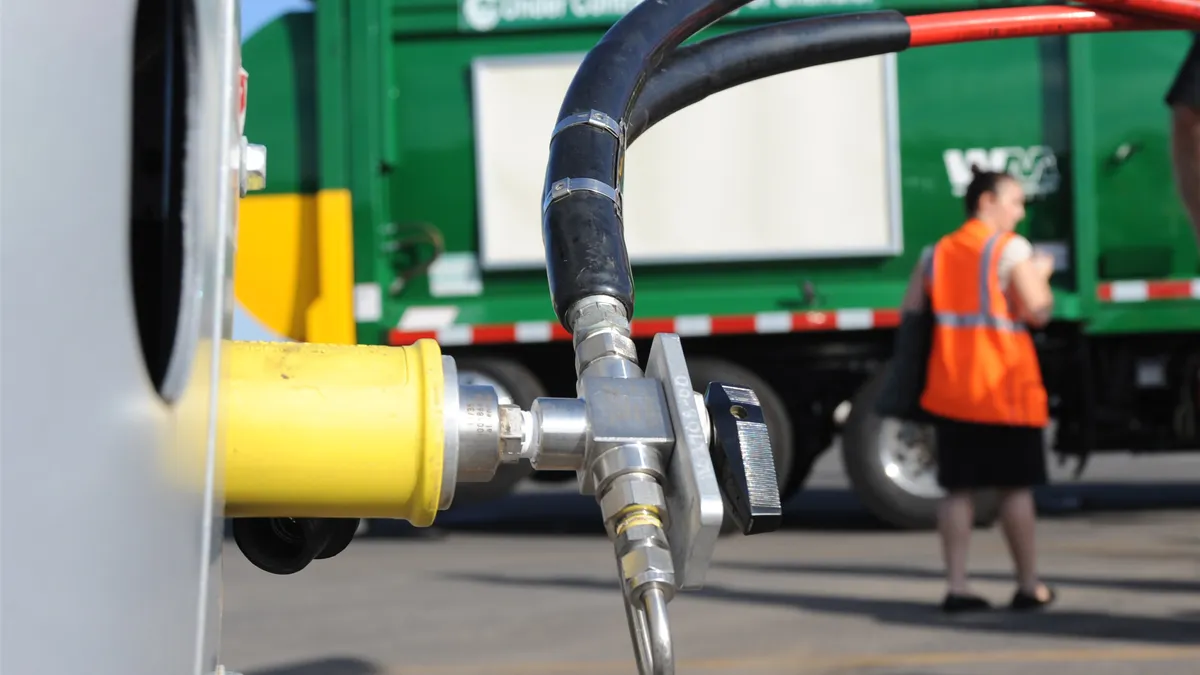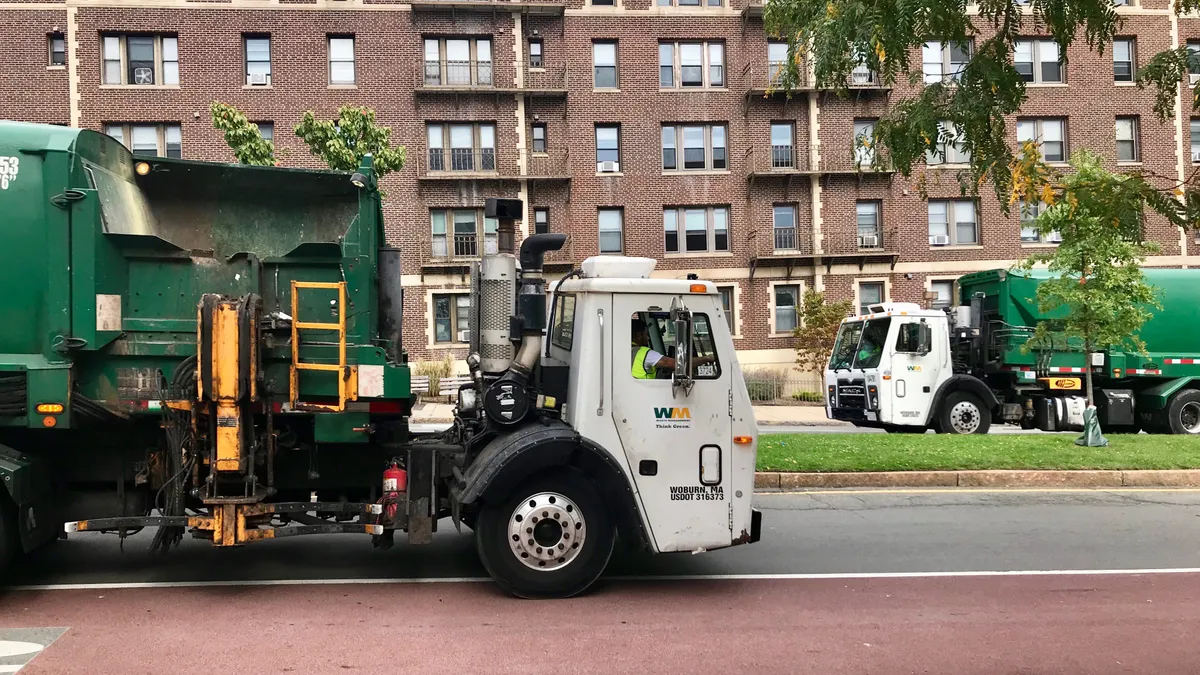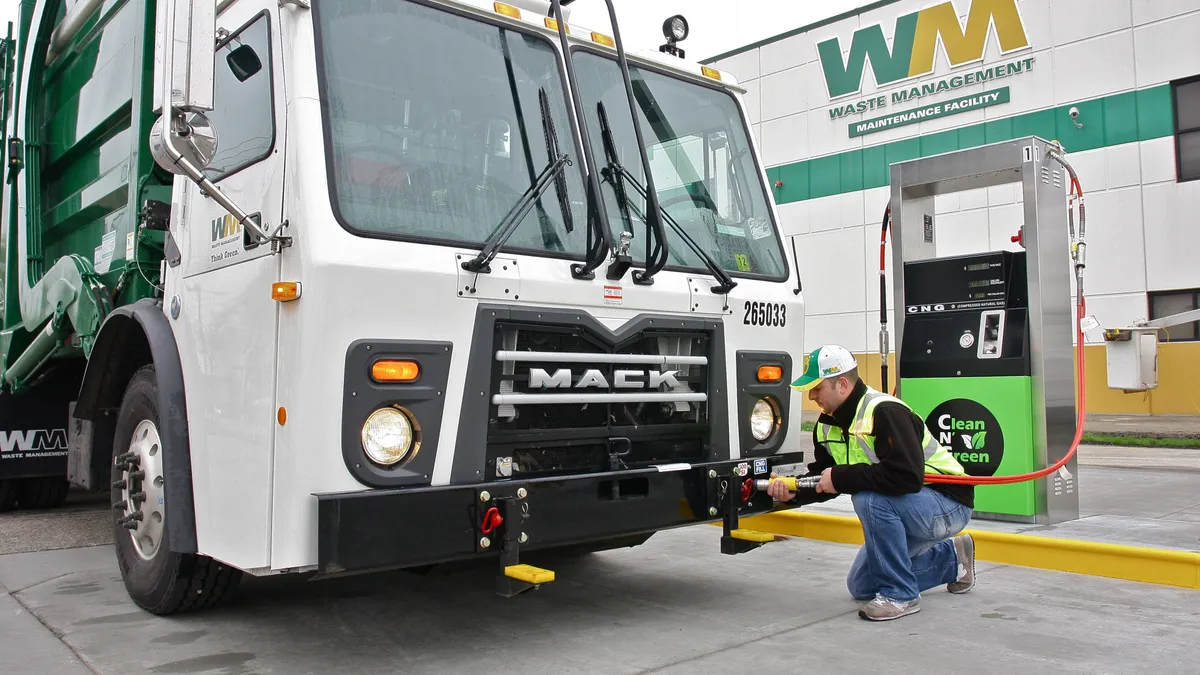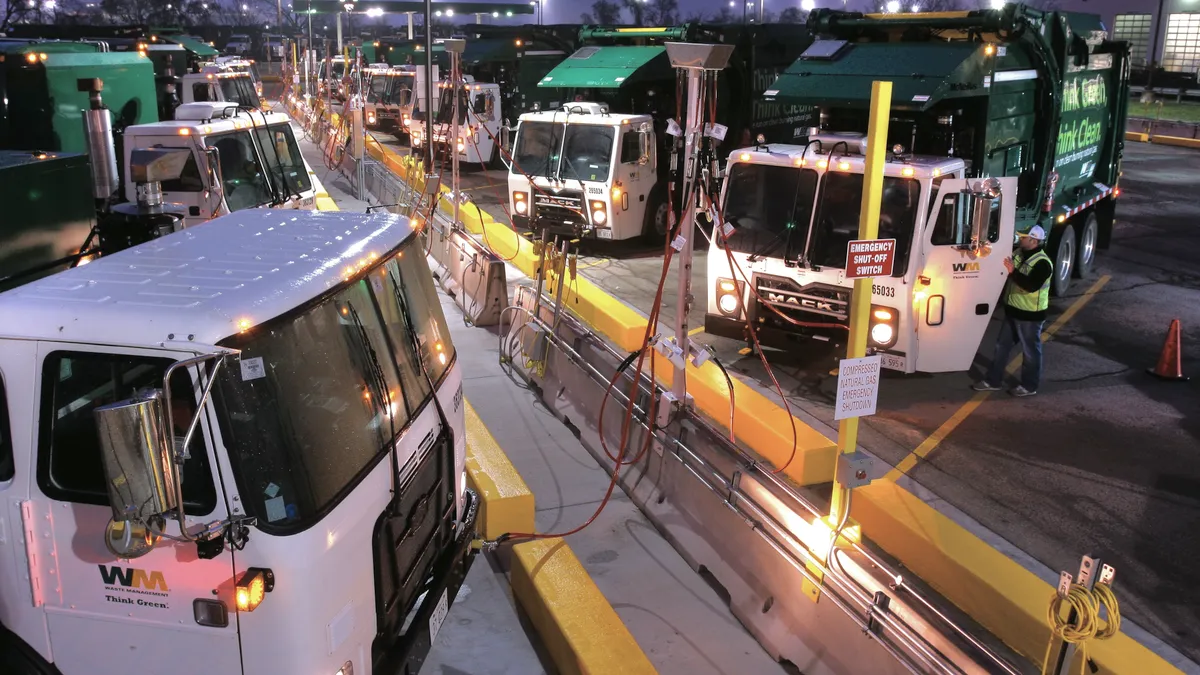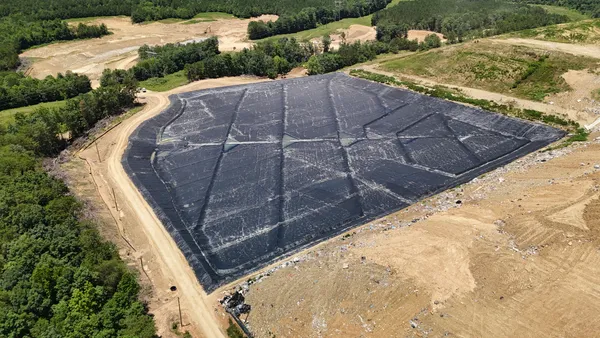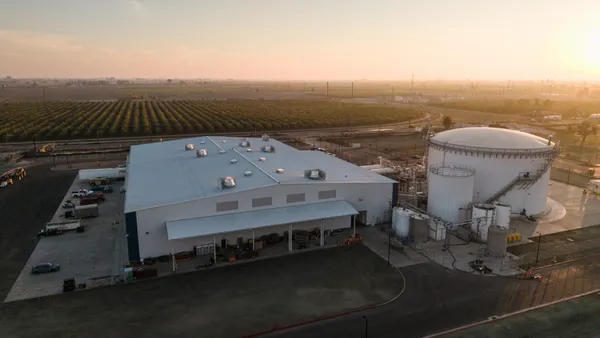2021 Earnings
| Revenue | $17.931B |
| Year-Over-Year Change | 17.8%▲ |
| Net Income | $1.816B |
Q4 Earnings
| Revenue | $4.678B |
| Year-Over-Year Change | 15%▲ |
| Net Income | $506M |
Waste Management executives said during a Wednesday call to report annual earnings that they're increasingly optimistic about offsetting inflation and labor headwinds heading into 2022.
“At no point in our lives have we seen a [year like] 2021 where we’re having hand-to-hand combat with a pandemic and at the same time seeing 40-year inflation, and with that we still raised guidance twice," said CEO Jim Fish.
The full benefit of price increases that the company implemented for customers throughout the year are still ongoing, due in part to certain contract cycles, but executives said they're on track to moderate cost effects from inflation and labor while increasing profitability in 2022. And while Waste Management has modestly ramped up its M&A activity (spending $73 million last year, net of cash acquired) executives placed greater emphasis on different investment plans for the year ahead.
ESG outlays
- Waste Management's main announcement in the call involved plans to spend $550 million on recycling facilities and renewable natural gas (RNG) projects at landfills in 2022, followed by another $1.075 billion between 2023 and 2025. Collectively, the company expects this will generate $580 million of annual run-rate operating earnings before interest, taxes, depreciation and amortization (EBITDA) by 2026.
- Spending on RNG projects is estimated to be $825 million in that period, with plans to add 17 new facilities to the company's existing portfolio of four sites. While options are open, and executives said outside interest has been high, the company currently expects to maintain 100% ownership of these new projects.
- Spending on recycling facilities by 2025 could total $800 million, including automation upgrades at an unspecified number of MRFs as well as the potential to expand to new geographies. Based on initial results from a few upgraded facilities, Waste Management anticipates it could phase out as many as 1,200 MRF positions through attrition on an unspecified timeline.
- Overall, Waste Management aims to trim as many as 5,000 to 7,000 jobs through attrition in the next four years via more automation spending. A large portion of this will be on the collection side, where the company estimates at least 3,000 more rear-load trucks could be replaced by automated side-loaders on an unspecified timeline.
Waste Management's ESG emphasis for 2022 continues momentum from 2021, when the company named Tara Hemmer as its first chief sustainability officer, and continues multiple years of heightened capital spending on recycling infrastructure. It also recently announced an expanded stake in mixed paper and plastics recycler Continuus Materials.
The company estimates this upcoming round of expenditures will help increase its recycling volumes by more than 1.5 million tons (building on 15 million tons recycled in 2020) and expand RNG generation by 21 million MMBtu by 2026. All of this fits into the company's long-term ESG goals, but is also seen as an advantageous business move.
While this won't preclude M&A spending, which executives said will continue for the right transactions, Chief Financial Officer Devina Rankin said company models show "the returns on those were better than the returns for solid waste acquisitions."
Fish described the RNG investment as a logical move, given the company runs North America's largest compressed natural gas fleet and is also sitting on the largest quantity of landfill gas. Other major competitors have also been increasing their spending on biogas projects, seen as the next generation after earlier landfill gas-to-electricity projects, and the broader RNG space has garnered substantial investment in recent years. This also comes as landfill emissions, which comprise the vast majority of public waste companies' greenhouse gas footprints, receive renewed scrutiny as a contributor to climate change.
On the recycling side, executives said the relative stability after that business transitioned to a processing fee model in recent years also makes it increasingly attractive. Operating EBITDA for recycling grew by $186 million in 2021, with revenue also rising to $1.68 billion for the year. Yet labor remains an ongoing challenge at MRFs, as has been the case for multiple years, and executives see further automation as the best move. And while the company says recruitment and retention rates have continued to improve among drivers since last summer, this still remains a pressing issue.
"We’re not talking about announcing a big layoff next week," said Fish, citing recent efforts to expand employee benefits as a continued priority. "We still feel very good about the fact that this is a great place to work, but where we have high turnover let’s take advantage of it."
Economic update
- While the latest COVID-19 surge had scattered effects on the company's business in certain areas, such as eastern Canada, executives said that overall volumes were less affected than earlier in the pandemic. Labor was still a challenge in the fourth quarter and into 2022, with an estimated 1,500 employees out for coronavirus-related reasons during the recent peak (more than half of whom were drivers) versus an estimated 800 employees during the prior delta variant peak.
- Core price for the fourth quarter was up by 5.1%, versus 3.2% in the same period of 2020, and overall core price was up by 4.8% in 2021. The company says residential pricing generally improved, but still has room for growth.
- Total volumes increased by 2.8% in the fourth quarter, and for 2021 overall, as compared with volume declines in the prior year period. Fish said customer churn rates were at an all-time low, and multiple large disposal customers that were traditionally price-sensitive recently accepted increases, in a sign that the business can adapt to inflation.
- Chief Operating Officer John Morris said "virtually all" of the acquired Advanced Disposal Services business has now been integrated into the company's billing and operational systems, leading to another $36 million in savings during the fourth quarter. The company expects it could see more than $150 million in synergies overall.
Looking ahead
- Waste Management spent a record $1.35 billion on stock buybacks and $970 million on dividends during 2021. This year, the company intends to increase its dividend payout by 13%, to $1.075 billion, and recently received board authorization for up to $1.5 million in additional buybacks.
- Free cash flow, excluding the $550 million in planned ESG spending, could approach $2.7 billion in 2022. Capital expenditures totaled $1.9 billion in 2021, despite prior concerns about supply chain limitations impacting certain orders. The company anticipates putting upward of $2.05 billion toward regular capital expenditures in 2022.
- The company anticipates 2022 revenue growth of up to 6% and adjusted operating EBITDA of up to $5.425 billion. This estimation factors in core price growth of 5.5% and overall collection and disposal volume growth of approximately 2%. Commercial and MSW volumes are expected to lead that category.



